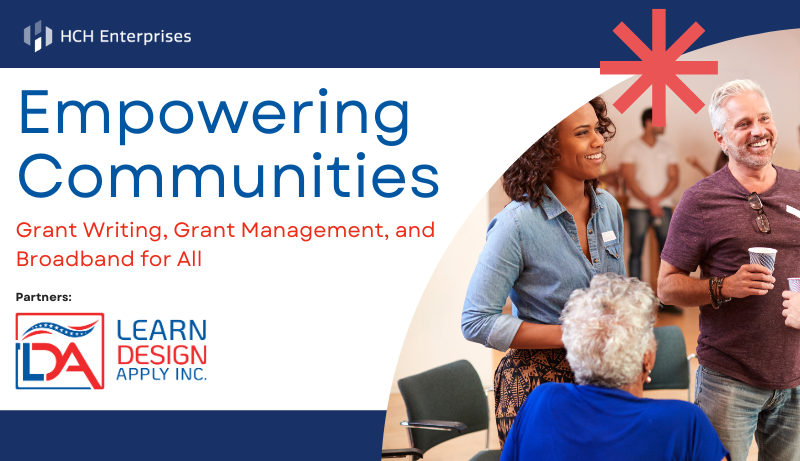Building Inclusive Government Policies: A Roadmap to Equity
Leaders in Government and Critical Infrastructure
Today, we would like to explore how government leaders can champion diversity, equity, and inclusion (DEI) as foundational principles in their decision-making processes. By prioritizing these principles, leaders can create policies that better reflect the needs of all people and build trust among their constituents.
Diversity
Inclusion and representation from various backgrounds, including race, ethnicity, gender, age, abilities, etc.
Equity
Fairness, ensuring that everyone has equal access to opportunities and resources, regardless of their background.
Inclusion
Creating an environment where everyone feels valued, respected, and has a voice in decision-making processes.
Employee Resource Groups (ERGs)
ERGs stand as valuable assets in cultivating inclusive and equitable work environments and communities. They provide a platform for underrepresented employees to connect, gain insights, and advocate for their needs.
ERGs play a pivotal role in DEI initiatives:
Fostering Inclusion: ERGs promote belonging and authenticity among employees, increasing visibility for underrepresented groups and fostering acceptance.
Improving Diversity: ERGs actively participate in talent attraction, showcasing organizations as welcoming communities and communicating the needs of underrepresented groups to leadership.
Promoting External Impact: ERGs assist in recruiting diverse talent pools, diversifying the workforce, and participating in government-led talent attraction events.
Training
Training acts as a catalyst for creating inclusive and equitable environments, addressing individual and institutional aspects.
Key aspects of training in government:
Mitigating Implicit Biases: Training empowers employees to recognize and mitigate unconscious biases in decision-making.
Ongoing Education and Awareness: Training programs keep employees updated on DEI best practices and emerging issues, fostering a culture of continuous improvement.
Interpersonal Relationship Building: Training addresses attitudes, stereotypes, and microaggressions, promoting a respectful workplace.
Institutional Transformation: Training empowers core groups to champion equity initiatives and addresses institutional and structural racism.
Community Engagement
Building connections with diverse community organizations and stakeholders provides invaluable insights into the unique needs and concerns of various populations.
Community engagement is essential for:
Building Relationships and Understanding: Engaging with diverse stakeholders informs policies that truly serve and represent communities.
Enhancing Trust and Transparency: Active listening and collaboration foster trust between government and constituents.
Inclusive Decision-Making: Involving stakeholders in discussions ensures fair and equitable policies.
Effective Service Delivery: Understanding community needs allows for more efficient and equitable service allocation.
Conflict Resolution and Prevention: Open communication helps address issues proactively.
Promoting Civic Participation: Engaging the public encourages active participation in local governance.
State Government Examples

Community-focused racial justice initiatives include:
- Forming a Diversity, Equity, and Inclusion (DEI) task force of community members (State of Rhode Island Diversity, Equity, and Inclusion Department of Administration);
- Celebrating diversity within the community through proclamations and public-facing events (State of Rhode Island DEI Events)
- Designing outreach strategies to include communities that have not been heard or represented (State of Rhode Island Governor’s Workforce Board)
- Rhode Island has made impressive strides in criminal justice reform, partnering with the CSG Justice Center to analyze state data and work alongside the Justice Reinvestment Working Group. Together, they develop data-driven policy options to cut correctional expenses and enhance public safety.
- Rhode Island DEI Leadership pipeline (Rhode Island Foundation Equity Leadership Foundation Initiative 2023/2024 Cohort)

Transparency and Accountability
Transparency and accountability are vital in DEI efforts, driving trust, progress measurement, and positive examples.
Public Trust: Openly sharing DEI goals and progress builds trust with the public.
Stakeholder Engagement: Involving the public and organizations invites collaboration and feedback.
Positive Example: Prioritizing transparency sets an example for other organizations.
The journey towards inclusive government policies involves breaking down barriers, embracing diversity, and promoting fairness at all levels. By implementing ERGs, training, community engagement, and transparency, leaders in government and critical infrastructure can forge a more equitable future for all.
Contributors:
Kathryn Peterson, Technical Writer
Chelsea Levesque, Director, Marketing
References:
- Advancing Racial Equity at the Local Government Level
- Effective employee resource groups are key to inclusion at work
- Commitment to DE&I | Governor’s Work Board
- Transparency and Open Government
- Advancing equity and racial justice through the Federal Government
- Rhode Island Office of Division of Equity Diversity and Inclusion
Gain a comprehensive grasp of effective grant writing and management, along with a deep appreciation for the pivotal role of broadband connectivity, through our enlightening webinar. Designed for professionals in both public and private sectors, this engaging session aims to enhance your knowledge and confidence in navigating the intricacies of grants while fostering the well-being of all communities.
Our interactive webinar delves into the fundamental elements of excelling in grant applications, navigating grant administration, and harnessing the transformative potential of broadband access for community advancement. Whether you’re a dedicated government official, a passionate nonprofit leader, or a knowledgeable private sector consultant, this informative webinar equips you with the essential insights to drive tangible impact within your community and professional sphere.
Webinar Highlights:
– Unveiling the Importance of Grants in Fostering Community Growth
– Exploring the multifaceted benefits of grant funding for nurturing vibrant community development projects
– Real-world case studies illuminating successful, grant-supported projects
– Crafting an Effective Grant Proposal: The Basics
– Navigating Optimal Grant Management Strategies
– Showcasing Achievements of Grant-Supported Broadband Initiatives
– Engaging Q&A Session to Address Your Inquiries
Don’t miss this invaluable opportunity to enhance your grant writing skills, gain insightful perspectives on streamlined grant management tactics, and recognize the life-changing potential of broadband connectivity for diverse communities. Secure your spot today and actively contribute to our mission of empowering communities and fostering sustainable progress.
Register now to embark on a journey towards understanding community empowerment and facilitating enduring growth!
